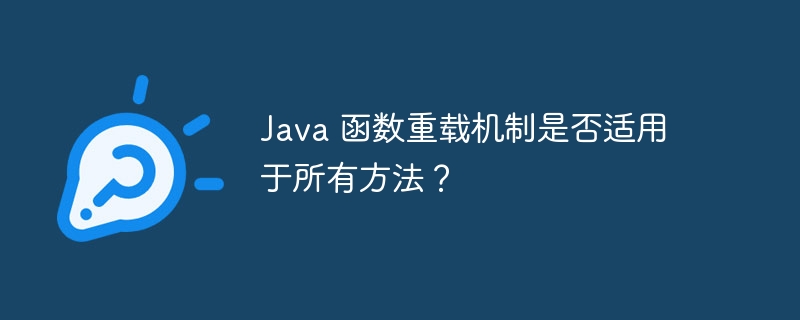
No, function overloading in Java only works for instance methods, not class methods (static methods), because instance methods are associated with a specific object, while class methods are associated with the class itself.

#Does the Java function overloading mechanism apply to all methods?
In Java, function overloading is a technique that allows the creation of multiple methods with the same name but different parameter lists. However, not all methods can be overloaded. Applies only toinstance methods, not to class methods (also known as static methods).
Why only applies to instance methods?
Class methods are methods associated with the class itself rather than with a specific object. Instance methods, on the other hand, are methods associated with a specific object. Therefore, the overloading mechanism only works for those instance methods that can be bound to a specific object.
Practical case
The following example shows how to overload an instance method:
class Person { // 重载方法 1 - 计算两个整数的和 public int sum(int a, int b) { return a + b; } // 重载方法 2 - 计算三个整数的和 public int sum(int a, int b, int c) { return a + b + c; } // 测试重载方法 public static void main(String[] args) { Person p = new Person(); int result1 = p.sum(1, 2); // 调用重载方法 1 int result2 = p.sum(1, 2, 3); // 调用重载方法 2 System.out.println(result1); // 输出 3 System.out.println(result2); // 输出 6 } }
Other restrictions
In addition to applying only to instance methods, function overloading has the following additional restrictions:
Understanding these restrictions is very important to correctly use function overloading in Java.
The above is the detailed content of Does Java function overloading mechanism work for all methods?. For more information, please follow other related articles on the PHP Chinese website!
